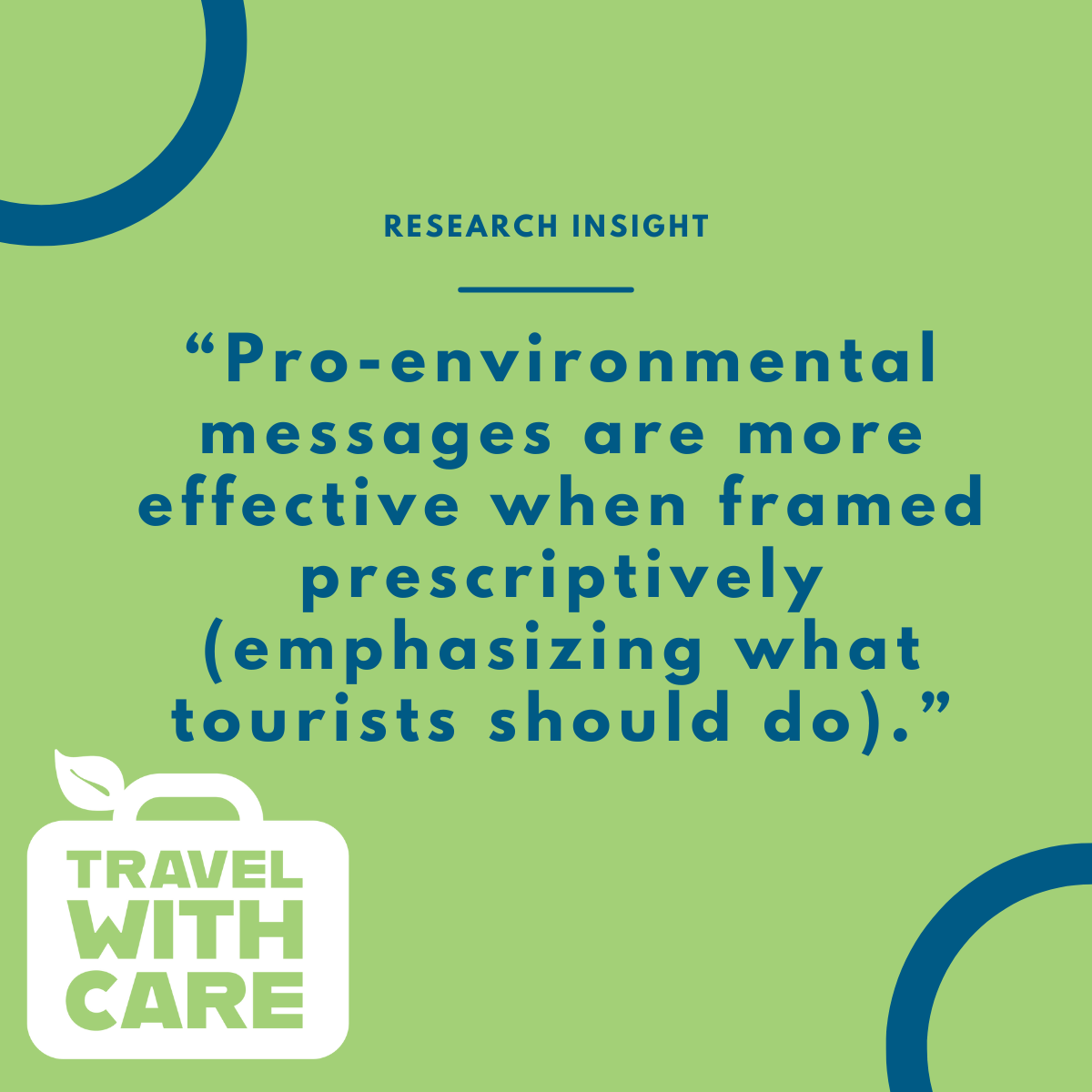
24 Jun Do This, Not That?
How Travel Context Changes the Rules of Green Messaging
Be clear and positive. That’s the lesson from new research by Song et al., 2023 that shows in tourism contexts, pro-environmental messages are more effective when framed prescriptively (emphasizing what tourists should do). For example, a message like “Please protect the environment” will be well received. On the other hand, a proscriptive message that states what they should not do (for example, “Don’t damage the environment”) is likely to be less effective.
Interestingly, the study finds the opposite is true when folks aren’t traveling. In daily life or local contexts, proscriptive messages emphasizing what not to do tend to be more impactful.
This is because tourism creates psychological distance from everyday life, and people in this context respond more positively to messages that align with approach-oriented goals and anticipated pride.
DMOs should tailor their sustainability messaging to fit this context-specific mindset for greater impact. Aligning message framing with the psychological distance and emotional responses of travelers can enhance the effectiveness of responsible travel campaigns.
The study can be found here.
Song, J., Lin, Z., & Zheng, C. (2023). Effective Pro-environmental Communication: Message Framing and Context Congruency Effect. Journal of Travel Research, 64(1), 206-221. https://doi.org/10.1177/00472875231206989

